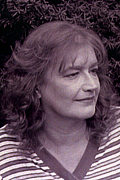Well, as the man said when they asked him why he climbed Mount Everest: “Because it was there.”
That answer might require some back story. Longer ago than I want to recall—oh, okay, it was 1981—I was embarking on my third attempt to write a mystery novel. (The less said about the first two attempts, the better, I assure you.) I wanted to know about investigative work as it is done by actual police detectives. So I made an appointment to talk to a lieutenant of detectives in the Cambridge Police Department. I remember the day itself well; it was one of those typical Massachusetts November afternoons when the sky looks like a dirty old mattress.
When I got to the station, I had to wait; the lieutenant was interviewing a witness to a crime. So I cooled my heels in the anteroom to the chief’s office. Sitting there with me were two detectives, socializing with the chief’s secretary, very genial white-haired men who introduced themselves to me as “the two Billies.” (Each had the first name of William.) They asked me what I was doing here in the police station. I explained that I was researching police procedure.
They told me that they’d been detectives for thirty years and had some great stories. I assured them that I was very, very eager to hear anything they wanted to tell me.
I added, then, that I was particularly interested in serial killers.
“Like Ted Bundy,” I said.
The two Billies looked at each other with odd little grins. Then one of them asked me, “Who do you think the Boston Strangler was?”
The question was a little startling, because I thought it had been long since settled. “Albert DeSalvo.”
Both Billies laughed.
“Albert DeSalvo was the Boston Strangler like my dog was the Boston Strangler,” one of them said.
Oh, my.
I asked them to tell me about it. And they did.
Well, the upshot of this conversation was that I kept on interviewing people involved, one way or another, in law enforcement: cops, district attorneys, defense lawyers, etc. And always, the subject of The Boston Strangler arose. And inevitably: Not one of these people thought DeSalvo was the guilty party.
It was one of the strangest disconnects I’ve ever experienced: A received truth was being roundly denied by those people in the best position to know the facts of the matter.
Well, anyway, I filed all this away, and went on to write novels, and my novels got published. But the Strangler story always stayed in the back of my mind. And so, in 1992, I decided to do something about it. I did the research, did the interviewing, and wrote the book. It was a lot of work, but it was a lot of fun.
(Maybe it wasn’t work. I love writing. It makes me feel really alive. Nothing involved in the process is tiresome to me.)
And…doing the book accorded me a rare privilege: that of revising a small piece of history. I read every single one of the case files regarding the murders that took place between June 1962 and January 1964, and my position on the case remains the same today. These murders were not serial killings, although a quite reasonable case can be made that the first four victims—older white women—might have been murdered by the same person.
Now I realize that some of you—with absolute justification—will point to the DNA testing done in the summer of 2013 on a blanket found in the apartment of Mary Sullivan, the final Strangler victim. It indicated that DeSalvo’s DNA had been found on the blanket. And I would understand perfectly if you concluded that this proved DeSalvo’s guilt of, at least, the Sullivan murder.
But…there were two samples of DNA found on Sullivan’s body—one in the pubic area–that did not match DeSalvo’s. One of them matched the DNA of the original prime suspect in her murder, who was not DeSalvo. The state declined to test these samples.
I should also add that DeSalvo’s DNA was not found on the blanket during any previous testing. I should further add that there were plenty of other reasons to assume that the prime suspect was guilty, such as the fact that he flunked two lie detector tests.
I believe that DNA is an incredibly useful tool in crime investigation. It is unique to an individual, and therefore irrefutable as a means of identification. If you find the DNA of a suspect in the vagina of a rape/murder victim, and under her fingernails from shreds of his skin that accumulated there as she tried to fight off her assailant, and on her face or anywhere else that his saliva or sweat or mucus or semen may have dripped…well, that’s very inculpatory. But the presence of DNA at a crime scene does not necessarily indicate guilt, particularly if it’s not on the victim. Let me tell you why.
We drop our DNA, in a variety of ways, everywhere we go. You’ve just returned from a trip to the grocery store. Your DNA is on anything you touched there, including that head of Romaine you returned to the produce bin because it didn’t look quite fresh enough. It’s on that bottle of ketchup you put back on the shelf because you just remembered you have an unopened bottle of ketchup in the cupboard at home. It’s on the money or credit card you handed the cashier at the check-out counter. And your DNA is all over the cart you used.
In the course of the day, did you go to your dentist? Your doctor? Your lawyer? Your DNA is all over their waiting rooms, consultation rooms, or examination rooms. If you went to the public library, you left it in their stacks.
Okay. Suppose you visited a friend and had coffee or a drink with him or her. Your DNA would be on the cup or glass you used, on the chair or sofa where you sat, in the bathroom if you used the sink, toilet, tub, or shower…it would be on anything you touched. And so would your fingerprints, for that matter.
Now suppose—horrific thought—your friend is murdered shortly after you leave his or her house or apartment. Your DNA is all over the place. It may also be on your friend’s body, if you hugged or kissed or shook hands. Suppose you and your friend engaged in some form of sexual activity. You have left your DNA all over your partner’s body, and on the bed, if you used the bed. Does that mean you’re the murderer? Of course it doesn’t. Sure, you might be. But more is required to prove your guilt. And that is exactly as it should be.
Well, I am not going to try your patience with a long list of reasons why Albert DeSalvo probably didn’t kill Mary Sullivan, nor anyone else. If you like, you can read the book (The Boston Stranglers). Or the article I wrote and posted on my Amazon author page (amzn.to./18wHstx; just type that address into your browser exactly as I’ve written it). Get back to me with any questions.
The Strangler case is fascinating for a lot of reasons. It became a social and cultural phenomenon, generated in large part by press hysteria. Boston had more newspapers then than it does now, and they were all competing for the same audience. (Sample headline from the time: PHANTOM FIEND STRIKES AGAIN.) The case also became a political football, and an opportunity for various people to make names for themselves. It was the perfect venue for showboaters. And, as the late Robert B. Parker once observed, for psychics and dancing chickens as well. In all this, the victims became…just bodies. They deserved better than that.
I am not an apologist for Albert DeSalvo. He wasn’t a good guy; he was a serial sex offender. But he wasn’t a serial killer.
So here’s the thing: We are all innocent until proven guilty beyond a reasonable doubt.







